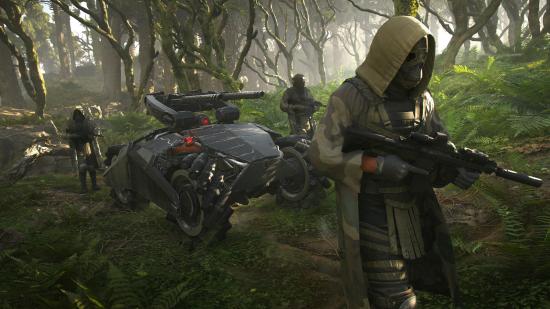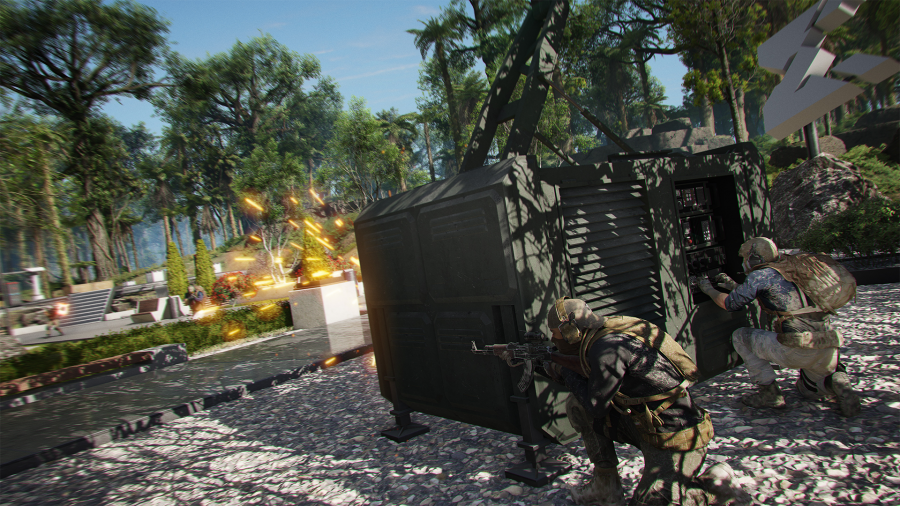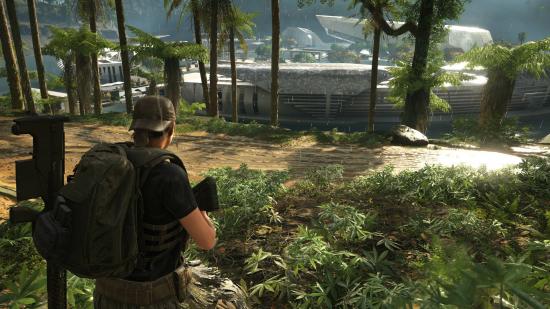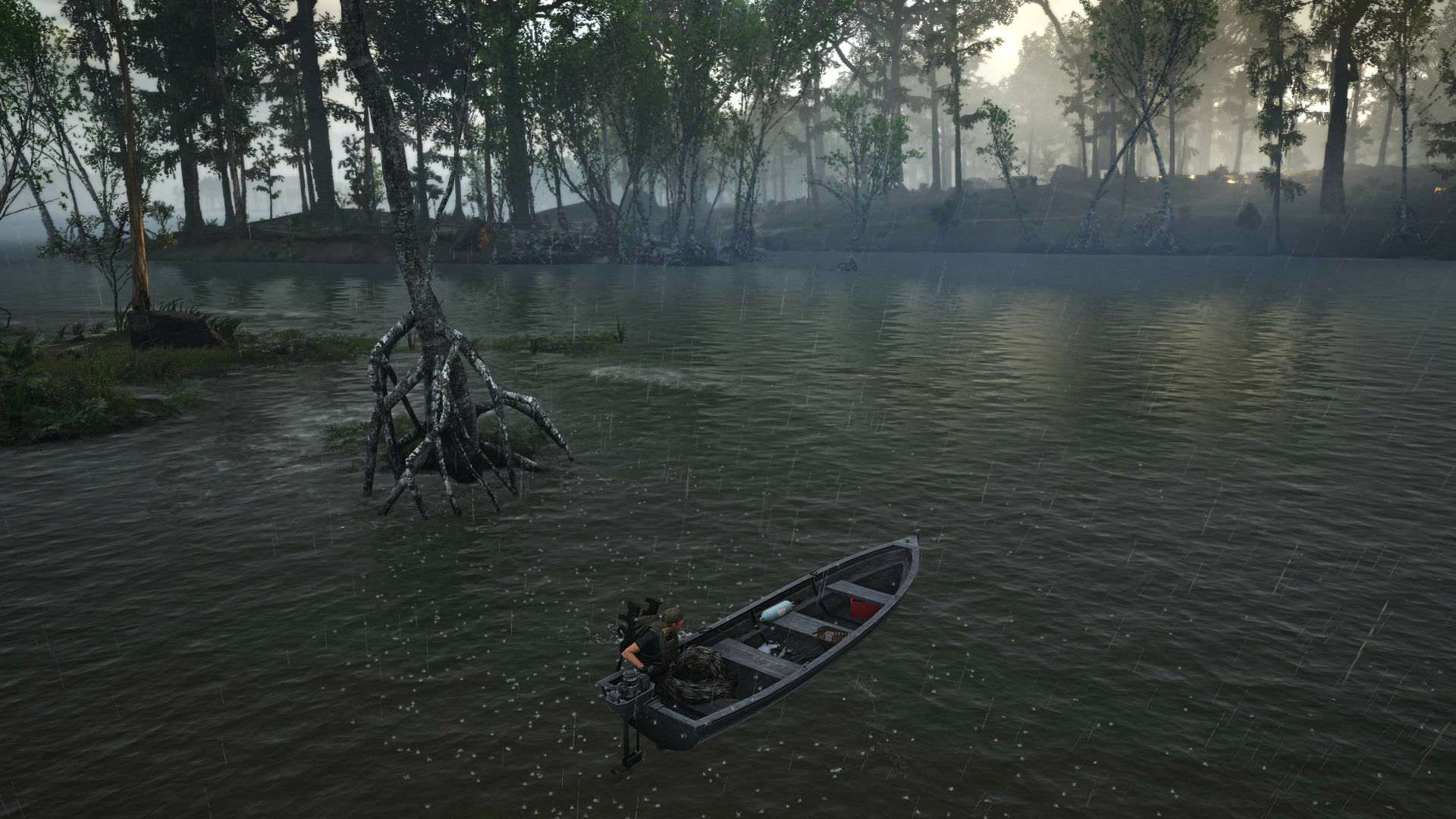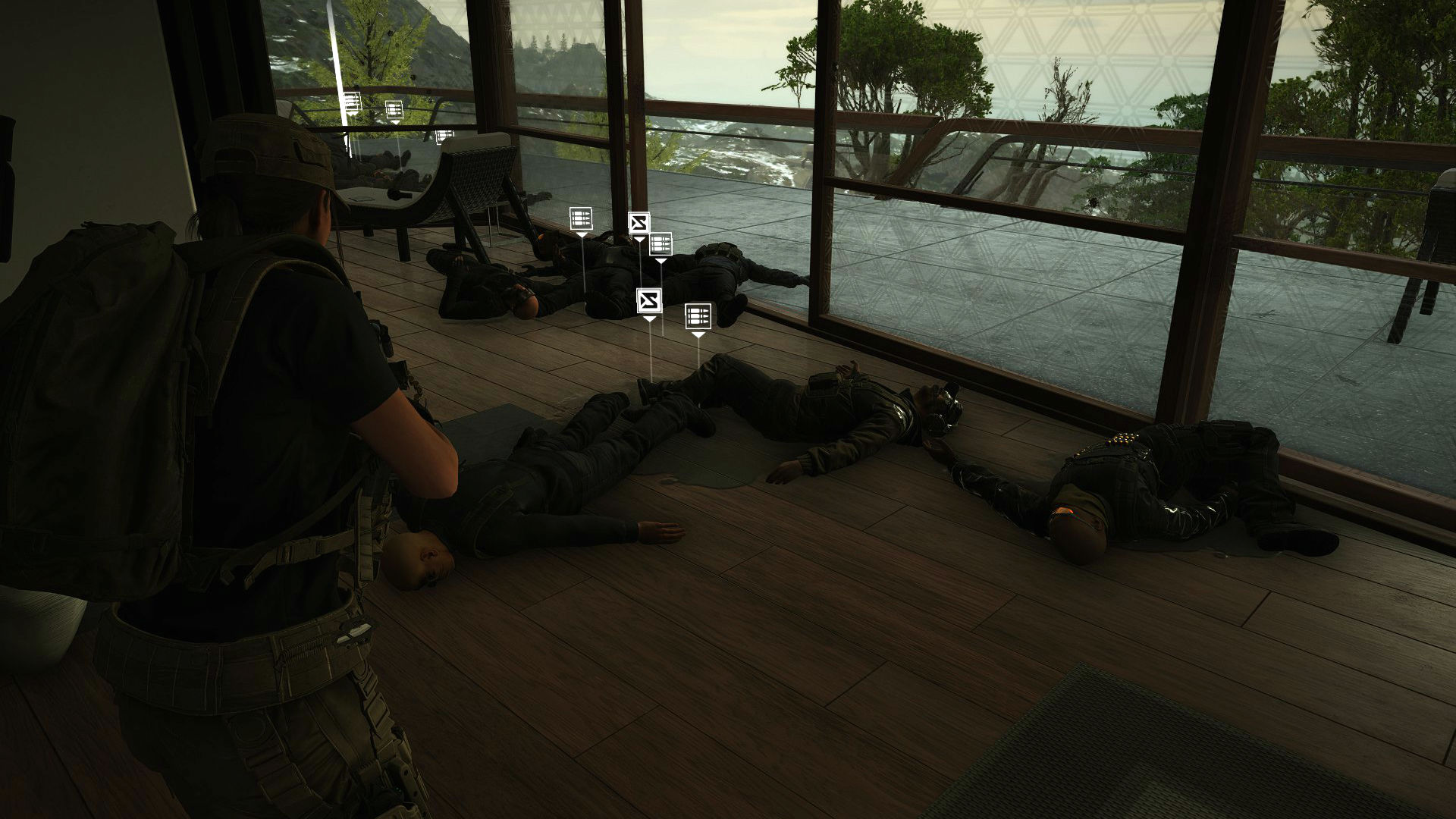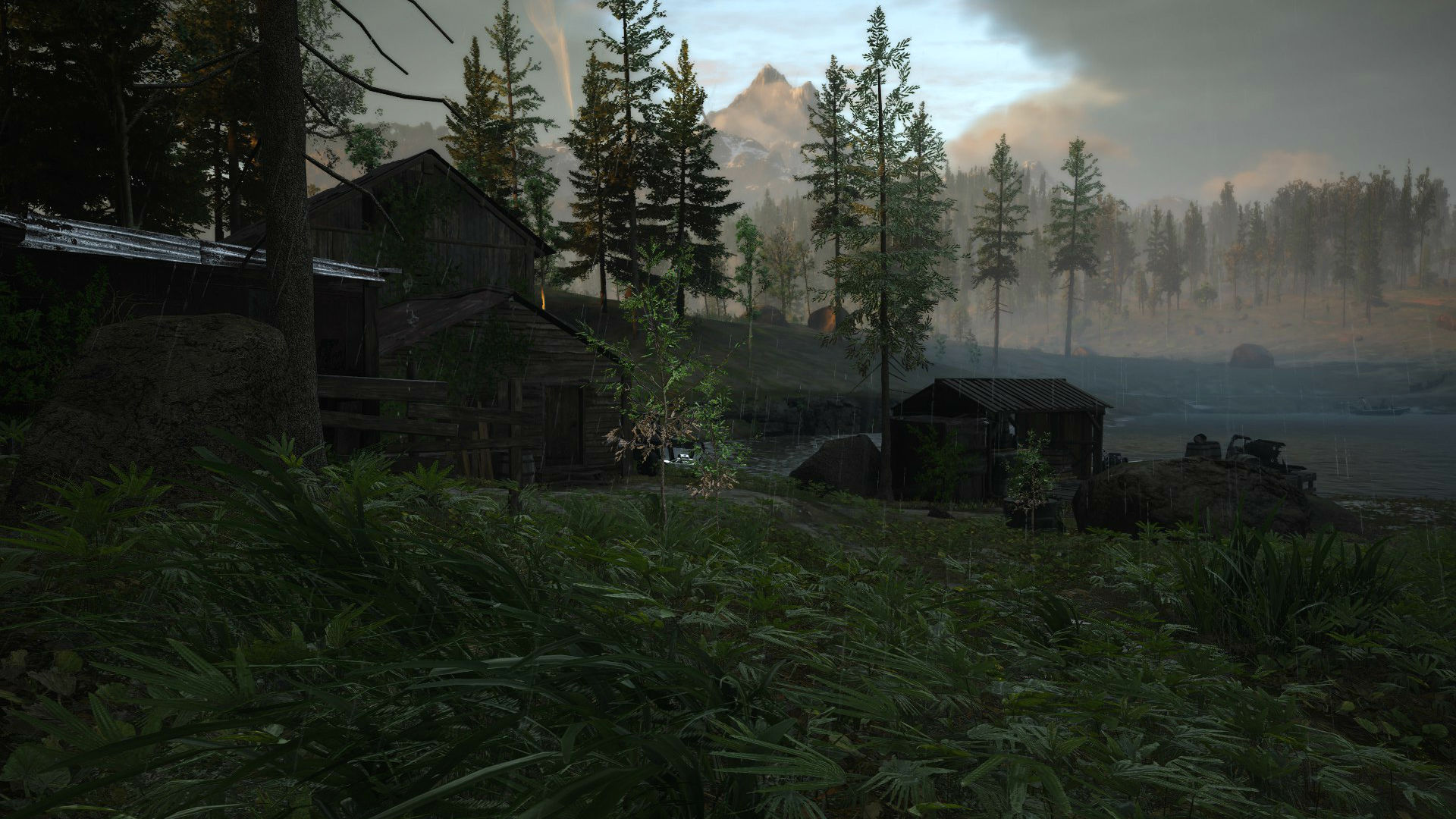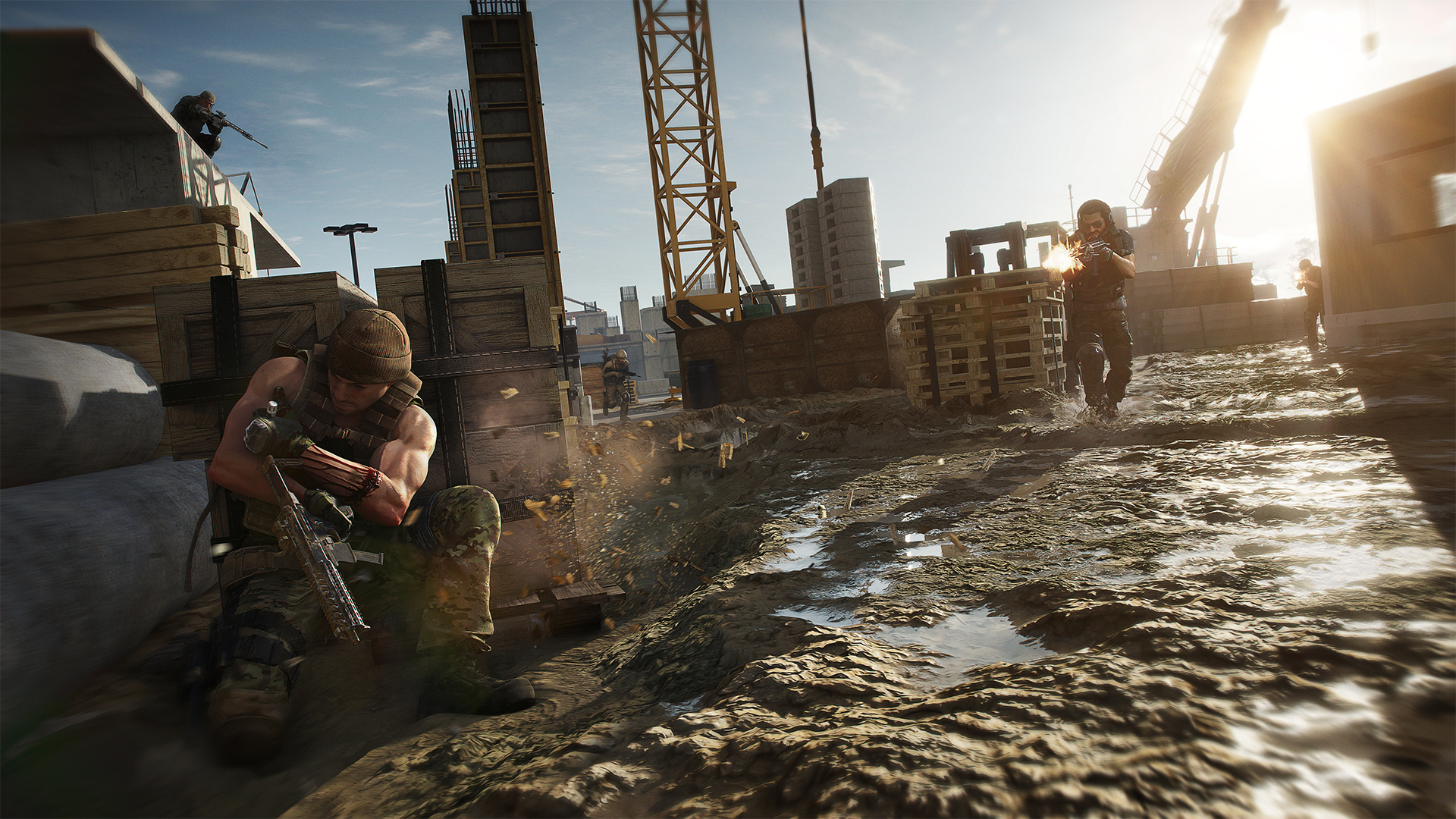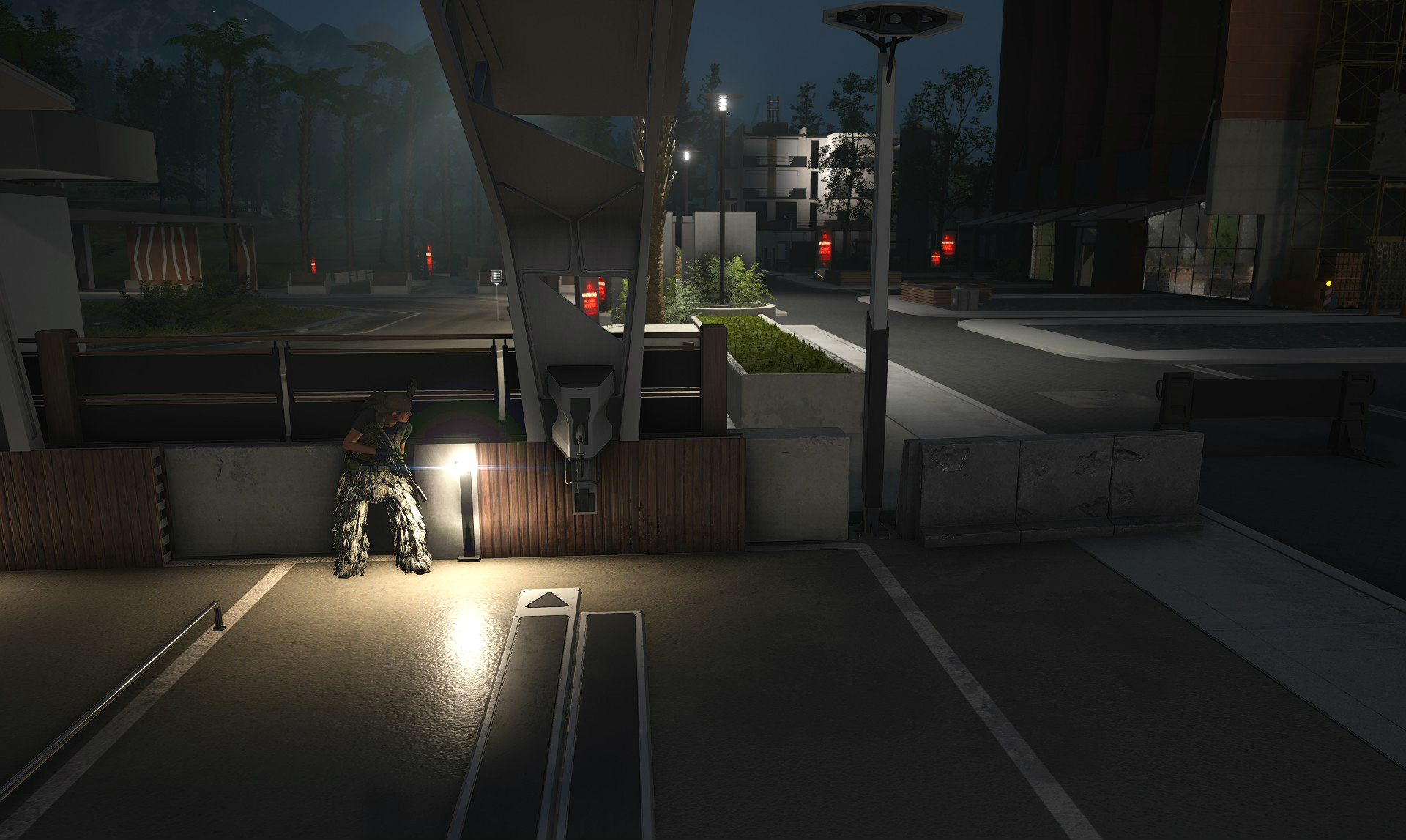Our Verdict
A muddled game that trips over itself by implementing mechanics from various genres, but never fully expands on their potential.
Breakpoint starts promisingly. Pushing the very basic character customisation to one side, I find myself – one fiery plane crash later – lying in the aftermath on a cluster of islands called Auroa. Tasked with piecing together the cause of the crash, I trample through a heavily wooded area, as enemies scout for survivors.
There are moments here that play havoc on my nerves, as I attempt to avoid detection by a marauding ex-military group called the Wolves. I’m wounded from the crash, but I have a supply of bandages that I can use to replenish my health and efficacy. The injury system is one of the ‘survival elements’ that the game first introduces, and for a moment, I really think Breakpoint might shake things up.
That moment swiftly passes as the cutscenes start rolling and the game’s vacuous and flat characters take their positions in an obvious storyline, complete with cringey dialogue, and enemy stereotypes. Auroa is home to Skell Tech, owned by the annoyingly named drone-technology pioneer Jace Skell. A crooked corporation called Sentinel has seized control of his company and dispersed the ex-military Wolves across the island, supported by a bunch of deadly Skell Tech machines.
Breakpoint’s fictional setting – as opposed to Wildlands’ controversial Bolivia location – gives Ubisoft more flexibility this time round. But the story and setting are so disconnected that tension isn’t carried forward in the gameplay, and I feel myself willing Breakpoint to lean into the futuristic survival horror elements it at first hints at. Instead, it simply conforms to the same narrative arch that I wish it wouldn’t, and ends up feeling indistinct as a result.
Breakpoint has the habit of never fully committing to the new elements it introduces. The injury system is a feature I acknowledge after taking several rounds of bullets, but it doesn’t dictate what I do – it’s easy to med back up with my unlimited supply of bandages. There’s also an exhaustion bar that rises whenever you run or fall, and it’s hard not to run or fall as you desperately try to navigate the dauntingly large Auroa. Once full, you’ll become exhausted and the bar will chip away, but never enough to limit you, or make you so exhausted that continuing is futile.
There are various items you can craft at bivouacs found around the island, all offering small perks or buffs, but I haven’t used them once. It’s a neat idea – foraging for supplies in order to craft items at campsites is one of my favourite mechanics in games that get it right. But each time Breakpoint introduces its own take on these ideas, I get excited by their potential and then quickly deflated when the game fails to follow through with any noticeable consequences.
Even the skill tree fails to compel. I’ve barely touched it, apart from unlocking the parachute to make getting around the island slightly easier. The skills aren’t useful or game-changing enough to generate the thrill you long for when unlocking a skill point. Certain areas and missions are soft-gated with an advisory gear score, which you build by equipping better weapons and gear. But the constant pressure to increase your gear score in order to open new areas means that you quickly abandon kit in favour of ‘better’ stuff, which makes weapon upgrades in the gunsmith menu feel somewhat pointless. Gunplay is gratifying for the most part, however, and guns deal a one-headshot kill to most enemies. Because of this I find myself cheerily revolving my loadout in order to test out my new toys on whichever group of hapless enemies is unlucky enough to be nearby – there are always enemies nearby.
You can purchase new guns at your homebase, Erewhon, where countless other players wander around, awkwardly huddling together in specific areas to progress the campaign. It detracts from the story’s suggestion that I’m a lone survivor when I see someone standing by the same NPC to trigger the same cut scene as me. However, being forced together with so many other, err, lone survivors does serve as a useful way to find allies, which is good because Breakpoint really wants you indulge in its four-player co-op. There are co-op skills in the skill tree, four different classes, and a stubborn ‘invite players’ reminder in the top right of the screen whenever I fast travel anywhere.

Getting around Auroa has it own set of challenges, both good and bad. My path is regularly scuppered by Auroa’s undulating terrain and high peaks, which has me smacking my head against mountain sides at points desperately trying to reach a location. It becomes especially infuriating as Breakpoint has a punishing way of spawning you annoyingly far from a campaign location if you die, usually in an inconvenient area, where it’s easier to roll down a hillside and watch your exhaustion bar slowly deplete than it is to find any other means of transport. While this foible is irritating, I suppose it does at least add some real jeopardy to dying…
The main campaign sticks to a repeating format in which you discover a location, clear it out, collect clues, piece them together, and then resolve the mission. After a while this loop starts to feel repetitive and rather dull. Enemy AI is disappointingly unobservant, too. In one campaign mission, I hide behind a sofa with all the stealth of a domestic house cat and take out enemies as they run blindly down the stairs, one after the other, all yelling, “We’ve lost her” and “I’m going to find you, bitch” (all this drone technology, you’d think they could communicate a little better). Once the last Wolf falls, I emerge from the safety of my sofa fort and collect my rewards from the mound of bodies. I should feel triumphant, but I don’t.
Overall, Breakpoint is an underwhelming solo experience despite offering a world loaded with potential. Although co-op play dilutes the boredom that sets in during repetitive missions, the game never quite finds itself among a mishmash of survival and RPG elements.
The weaponry and gear systems offer a little to get your teeth into, sure, and the game’s combat and stealth mechanics feel satisfying despite the game’s somewhat dull-witted enemies. It’s just a shame that Breakpoint borrows so much from elsewhere without offering many ideas of its own, or committing fully to the ones that it does. Breakpoint is fine, but why settle for that?
